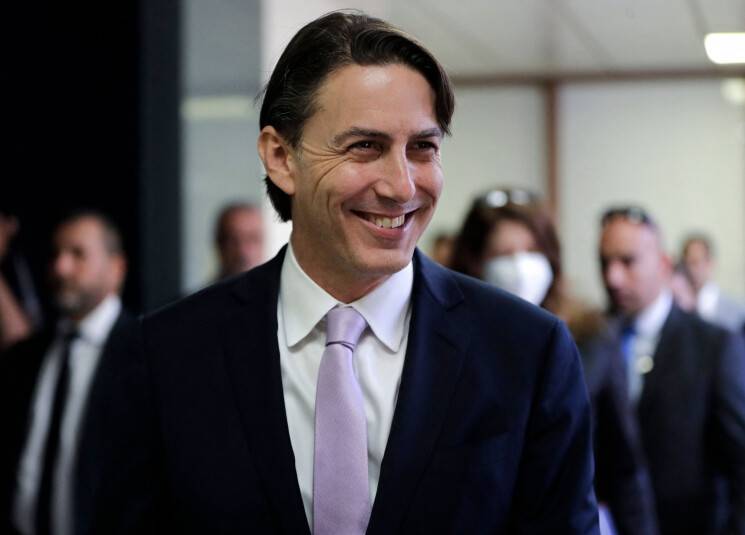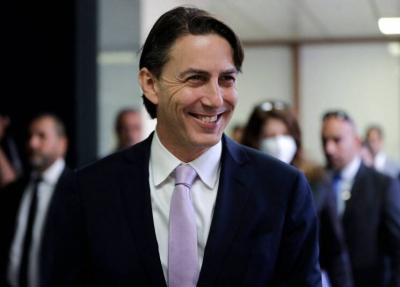It appears that September will be a month filled with significant political developments and anticipated outcomes, whether negative or positive, as the effort of French presidential envoy Jean-Yves Le Drian unfolds upon his arrival in Beirut on the 11th of next month. This visit is occurring amidst a flurry of conflicting interpretations and analyses; some say Le Drian is acting on behalf of the Quintet Committee, while information leaked in recent days suggests that various diplomatic missions, both Arab and foreign, are sending clear messages to certain political forces in Lebanon, indicating that the results Le Drian arrives at are not binding on the Quintet countries, which do not agree with the French approach and will not endorse it, especially concerning the messages sent to the Parliament. The Doha statement is clear, particularly regarding the presidential election and the qualities required in a president.
In any case, September is approaching, but the impending visit of American envoy Amos Hookshtein to Beirut tomorrow, where he will meet with Speaker of the House Nabih Berri, caretaker Prime Minister Najib Mikati, Foreign Minister Abdullah Bouhabib, and Army Commander General Joseph Aoun, has overshadowed Le Drian's third visit to Lebanon. The motives behind Hookshtein's visit are varied: some suggest that having successfully concluded the maritime border demarcation file between Lebanon and Israel, it is only natural for him to review the drilling platform that arrived a few days ago in Block 9, viewing his presence as a celebration of that achievement. Others link the visit to land demarcation, with Hookshtein, who had previously visited Israel, working to finalize the file in complete secrecy; however, a relevant source emphasized in a conversation with our site "Wardna" that "our land borders have been delineated since 1923 and were reaffirmed in 1949, with certain Lebanese points under Israeli control, notably point B1, which serves as the reference point between the Lebanese land and the sea at Ras al-Naqoura. This encroachment has a significant impact on the maritime line and regional maritime boundaries. There are no disputed areas between Lebanon and Israel, but points that need to be confirmed because, under international law, they are Lebanese lands, recorded since 1923 and confirmed in 1949. The points controlled by Israel are strategic, particularly at Ras al-Naqoura," stressing that "it is impermissible to negotiate the delineated land borders that only need to be confirmed. The land borders are clear."
Meanwhile, a military officer involved in the file clarified for our site that "to speak of border demarcation implies that there are no delineated borders between the two countries, but the land borders between Lebanon and Israel were marked in 1923, and all coordinates related to the borders from Ras al-Naqoura to the Shebaa Hills are present. Thus, it is inappropriate to discuss land border demarcation today; rather, we must affirm the borders, and Lebanon will obtain its rights on land when we affirm the borders according to the ceasefire agreement, especially since there are 14 points of encroachment on Lebanon—an issue much more complex that requires a solution, which will not be easy."
Hours before the United Nations Security Council is set to decide on extending the mandate of the UN peacekeeping forces in southern Lebanon (UNIFIL), some believe Hookshtein's visit will address this contentious subject, especially as the Lebanese state has appeared confused, particularly after sensing the international insistence on expanding the functions of its forces and granting them powers to operate without coordination with or prior coordination with the Lebanese army, a move that constitutes provocation to Hezbollah, which is suspicious of UNIFIL’s role, seeing it as "spying," to determine whether houses and neighborhoods in the border villages contain arms depots.
While one source close to the issue told our site that "returning to the decision in place before 2022 is a guarantee not only for the Lebanese but also provides security coverage for UNIFIL forces, limiting friction between them and parties and civilians in their area of operation," he also noted that the prospect of granting peacekeeping forces extensive authorities under Chapter VII appears to be a pressure tactic on Lebanon, especially since there is a legal context to this matter and the UN is not in that mood. The Secretary-General can place the Chapter VII matter on the Security Council agenda under two scenarios: the first is significant incidents within the country, and the second is if a major party within Lebanon requests it.
As Lebanon approaches the eleventh month of vacancy in the presidency, relevant parties do not dismiss the possibility that Hookshtein will carry political messages regarding the presidential election, although things are yet to crystallize, especially amid discussions regarding the difficulty of Le Drian succeeding in achieving any breakthrough in the presidential context. In this regard, "Wardna" reached out to various political parties from both the opposition and the ruling bloc, all of whom confirmed that they had not been contacted directly or indirectly regarding Hookshtein's visit and have no knowledge of its objectives. However, an expert close to the U.S. administration clarified in a conversation with our site that oil and gas extraction is fundamental to U.S. diplomacy, particularly following the Ukrainian war, working from core interests related to energy and its global price, regarding other issues as revolving around it, including the presidential election. Therefore, the U.S. priority has been, even prior to the presidential vacuum, to reach agreement on maritime border demarcation, ultimately leading to future gas production as part of alternatives to Russian gas in Europe. This effort contributes to regional stability, as the U.S. aims to focus on an open front, namely Ukraine. Today, Hookshtein aims to build on his achievement and reinforce the calm on this matter. It’s noteworthy that this visit follows a semi-agreement between the U.S. and Iran regarding the release of hostages on one side in exchange for the release of $6 billion on the other.
In conclusion, the presidential maneuvering is secondary for the Americans, but it may become a priority for them once assurances are in place regarding the smooth extraction of oil and gas.




